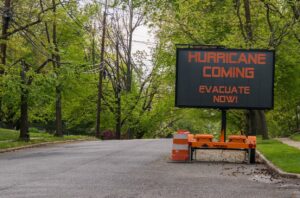You’ve found your dream home. It’s in the neighborhood you wanted and has that open-concept kitchen you can’t seem to forget. You can’t wait to close and move in, but before you do that, you need to know more about the home. That’s where a home inspection can help.
We recently welcomed Alan Grubb, a Certified Master Inspector for 4U Inspection Services, to the vipHome Podcast. Watch now (or read below!) to learn everything you need to know about home inspections.
What is a home inspection?
“A home inspection is basically a professional consulting service, and we determine the present condition of any of the home’s major systems,” says Grubb, who serves on the board of Maryland Association of Home Inspectors. “It’s all based on a visual inspection.”
A home inspector examines the structure, mechanical parts, and systems of the home, including the roof, driveway, the plumbing and electrical systems, HVAC, chimneys, garage doors, and installed kitchen appliances. An inspector can check to see if these items are functioning properly and when they approximately were installed.

A good home inspector is trained to see warning signs of damage or disrepair. For example, if a home inspector finds moisture somewhere it shouldn’t be, they may advise a home buyer to request a plumbing contractor examine the area to see if there is water damage.
“We’re going to recommend when we see issues or concerns that indicate that there may be further problems, which may require specialized attention,” says Grubb.
Does a homeowner need to make repairs after a home inspection?
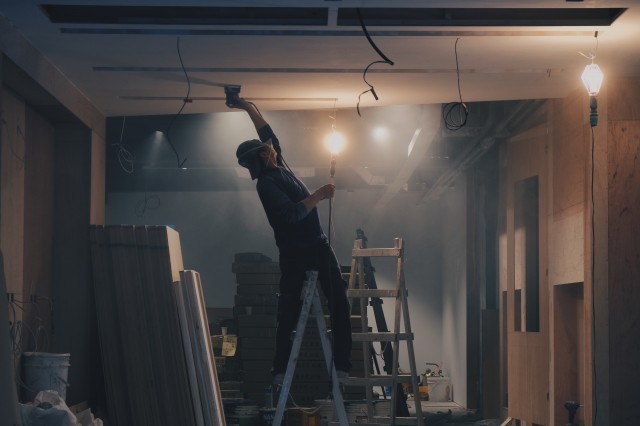
A buyer may request repairs or try to negotiate a lower price for the house, but Grubb explains most home inspectors separate the report into a few different segments – maintenance items, repair items, and safety concerns.
A repair item is an appliance that is not functioning as intended. This indicates a problem that probably needs to be repaired. A maintenance item may need to be fixed later, but it’s not an immediate concern. A safety concern may need to be repaired prior to taking occupancy of the home, such as a loose stair rail that can create a fall hazard for children.
Safety issues are anything extreme, such as a gas leak or electrical hazard. “Anything that extreme – we’re not only going to put it on the report,” says Grubb. “We’re going to call the gas company.”
When is a home inspection needed?

“Most of the time, an inspection is done when you’re getting ready to purchase a home,” says Grubb. “Because it’s new to you, you need that third eye on the inspection.”
When homeowners fall in love with a home, they can lose objectivity. A third-party inspector can provide perspective to buyers by illuminating parts of the home that could haunt them after purchase.
Most home buyers work with real estate agents, and the real estate contract usually allows the buyers between seven and 14 days to complete a professional home inspection.
“If you’re in the height of the season, plan on at least four or five days out,” recommends Grubb. “Normally, we can book within two or three days.”
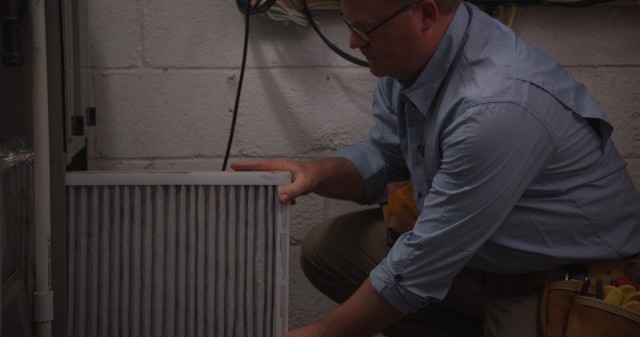
Grubb has noticed a trend where home sellers acquire a pre-listing inspection. Instead of waiting for a home buyer to discover issues in the home, a seller can use the inspection report to know which items to fix before ever putting the home on the market.
“This can shorten the negotiation time,” says Grubb, “and if you can get three bids for the projects and save money – that’s great.”
But Grubb does not recommend a home buyer using a pre-listing inspection report as the final inspection.
“Always do your own inspection,” says Grubb. “Inspectors are all different. Some see things that others don’t, and maybe something broke after the previous inspector completed their report.”
How long does it take to get a home inspection report?
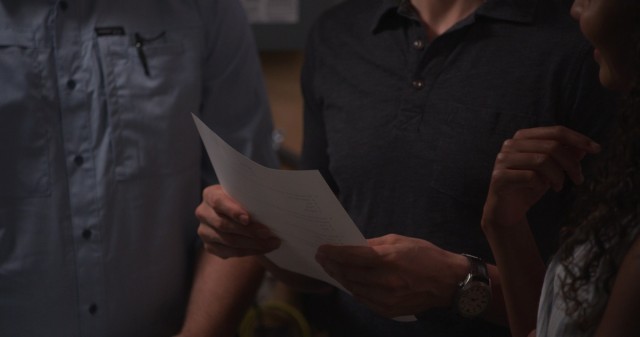
The home inspection process varies depending on how an inspector completes the report as well as legal obligations.
“From the time I complete the inspection, I have seven days to present your report in Maryland,” says Grubb. “However, if I told any real estate agent it was going to take me seven days to do that report, I would get no business at all.”

Grubb cites technology as helping to expedite reporting. Grubb and his team can generally turn around a home inspection report the same day or within 12 hours. Some inspectors even do it on site.
“Our company is a little bit particular in how we present things,” says Grubb, “so we will actually review it with the client right there on site. When you leave the home, you know exactly what’s going on with it.”
How do I find a good home inspector?
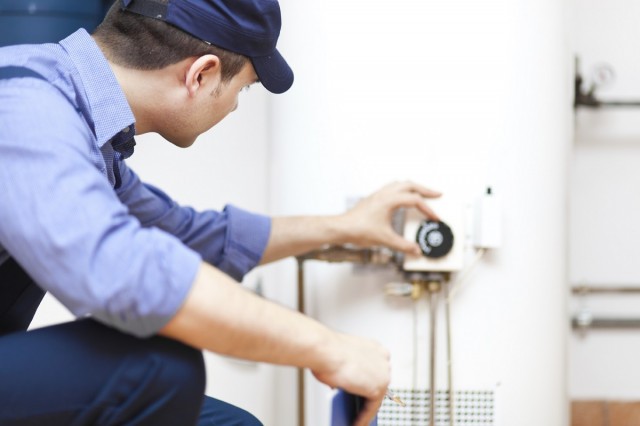
Grubb recommends that buyers listen to their agent’s suggestions but also advises to read online reviews.
“If you look at the reviews, you have a good idea of the customer experience,” says Grubb. “Also, look at their website. It’ll give you an idea of their professional experience.”
Your home inspector should also be a member of one of the two major home inspection organizations in the US – The American Society of Home Inspectors and The International Association of Home Inspectors. This will help you know that your home inspector is well trained.

“There’s also certain states, Maryland included, that require a home inspector to be licensed,” says Grubb. “You can go on the state website and type in the inspector’s name to find out if his license is valid.”
This is important when buying a home as a non-licensed home inspectors’ report in Maryland is invalid and not permissible for a real estate contract.
Buyers should also talk to their inspector beforehand to ask the frequently asked questions – the steps to getting the report, the turnaround time, and if they can be on site for the home inspection.
Grubb wants the home buyers, especially first-time home buyers, on hand, so they understand the report when they receive it.
“I want to walk you through the home,” says Grubb. “I want you to see what I’m seeing and teach you about what I’m seeing.”
(This is helpful to provide homeowners with the knowledge they need to prevent damage and injury in their new home, such as the location of the water shut-off valve and the breaker box.)
What about virtual inspections?

During the COVID-19 pandemic, some home inspectors completed virtual inspections. This meant only the home inspector was inside the home and walked the home buyers through the process via video call.
“We were able to give buyers the same information,” says Grubb. “It was live, and they could ask questions. They just weren’t there physically.”
In fact, the process has worked so well that clients have requested 4U Inspection Services to keep the virtual option.
“We’re in an area where there’s a lot of military, a lot of government workers,” says Grubb. “Sometimes they can’t be here for the home inspection, so real estate agents love that we can show a client the home inspection without them flying from California, New York, wherever, to be there for a three-and-a-half-hour home inspection.”
When do you pay for a home inspection?
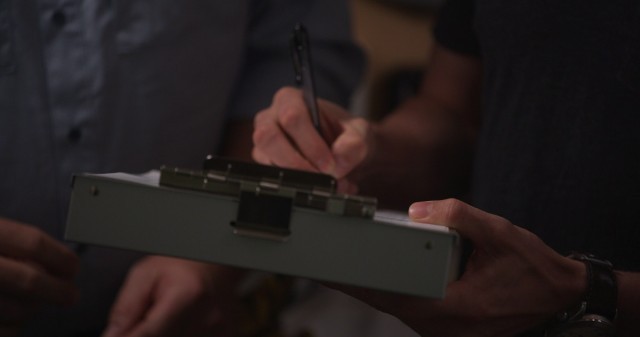
The report belongs to the person who hired the home inspector and paid for the report. In a real estate deal, the home inspector completes the report and sends it to the client. The buying agent will generally get the report as well, and the buyer and agent discuss what they want fixed in the home prior to closing. If the buyer desires repairs to be made, then the buyer’s agent will forward the report to the selling agent, along with their repair request.
“Every once in a while, we’ll get the selling agent that wants to reuse the report on the next buyer,” says Grubb.
Unfortunately, many issues can arise in the home after the original inspection report has completed, especially if it’s occupied. As mentioned earlier –
“You should always have your own inspection done,” advises Grubb.
How much does a home inspection cost?
There are two different formulas that inspectors use when setting prices. Most inspectors use a square footage measurement, based upon time.
“If I inspect a thousand square foot home, then the price will reflect the time I spent there,” says Grubb.
However, there might be some add-ons that raise the cost of a home inspection, such as an apartment over a garage.

The other formula is based on percentage and is less frequently used.
“It usually comes into play in larger metropolitan areas where you have a small building that takes a lot of time and traffic. If a home is selling for $500,000, the cost might be one percent of the asking price.”
While the price varies from region to region – a homeowner in northern states and metropolitan areas can expect to pay a bit more – it’s important to remember that certified home inspectors are professionals.
“We have training,” says Grubb. “We are licensed. We attend continuing education courses. We’re professionals, so we have to charge a professional fee.”
Once you’re in your new home –
Homeownership can be hard, but it doesn’t have to be. The vipHome.app can help. In less than four minutes, enjoy a new way to manage your home. Simply download the app, register your home, and enjoy a simplified homeownership experience.
Get it today!



